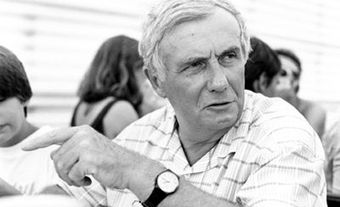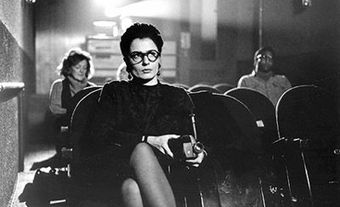Harry Rasky
Harry Rasky, director, writer, producer (b at Toronto 9 May 1928; d at Toronto 9 Apr 2007). Harry Rasky attended the Regal Road Public School and Oakwood Collegiate. He graduated from the University of Toronto in 1949 with a bachelor of arts, and first was a reporter in Kirkland Lake, Ont, for The Kirkland Lake News. He then became a news editor/producer for CHUM radio in Toronto (1950), and news editor/producer for CKEY (1951-52). He was the sole reporter/producer on CBC-TV's inaugural News Magazine on 8 September 1952, when the notorious Boyd bank-robbing gang escaped Toronto's Don Jail. Harry Rasky was there when the police cornered the fugitives in a barn north of the city, and his footage became the first news item broadcast on the English-language network. He was just 24 years old at the time.Harry Rasky went on to co-create CBC-TV's documentary/news department and later moved to New York City. From 1957 throughout the 1960s he produced freelance documentaries and current affairs programs for every major US network; then in 1967 he formed Harry Rasky Productions. He won an Emmy Award for ABC's Hall of Kings, an impressive film made about Westminster Abbey in London, England, with James Mason and Lynn Redgrave providing commentary. In 1970 his documentary Upon this Rock, about St. Peter's Basilica in Rome, with commentary by Orson Welles, Ralph Richardson and Dirk Bogarde, among others, won a top prize at the Venice Film Festival.
He returned to Toronto and entered into a long-term arrangement with CBC-TV. Beginning with The Wit and World of George Bernard Shaw in 1972, and ending with Prophecy in 1995, he delivered one documentary per year at a set fee. He became known for his lavish and loving biographies of famous people such as the great Russian painter Marc Chagall in Homage to Chagall: The Colours of Love (1975), an Oscar nominee for best documentary; the Montréal poet and novelist Leonard Cohen in The Song of Leonard Cohen (1981); and the opera star Teresa Stratas in Stratasphere (1983). His innovative films were often dubbed "Raskymentaries" for their unique blending of narration, music, poetry, documentary, and fiction-film elements. His critics dismissed them as merely the works of a "creative producer," lacking originality or a point of view.
Harry Rasky won hundreds of awards and citations throughout his long career, including ACTRA Awards for Tennessee Williams' South (1973) and Next Year in Jerusalem (1974), an award for outstanding directorial achievement in documentary/actuality for Homage to Chagall from the Directors Guild of America, a GENIE AWARD nomination for Being Different (1981), and the Margaret Collier Award for lifetime achievement from the Academy of Canadian Cinema and Television; he was also a member of the ORDER OF CANADA. He received an honorary degree from the University of Toronto in 1982 and he wrote an autobiography, Nobody Swings on Sunday, which was published in 1980.
His other films include An Invitation to a Royal Wedding (1972), Travels through Life with Leacock (1975), The Peking Man Mystery (1977), Arthur Miller on Home Ground (1979), The Man Who Hid Anne Frank (1981), The Mystery of Henry Moore (1985), Karsh: The Searching Eye (1986), The Great Teacher: Northrop Frye (1989), The War against the Indians (1992), the autobiographical Nobody Swings on Sunday: The Many Lives and Films of Harry Rasky (2002), and Modigliani: Body and Soul (2005).

 Share on Facebook
Share on Facebook Share on X
Share on X Share by Email
Share by Email Share on Google Classroom
Share on Google Classroom


